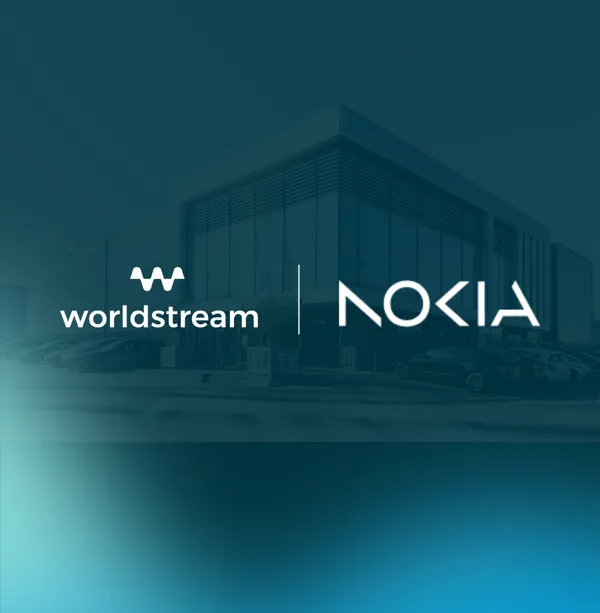The Benefits of Integrating Managed Services with Data Center Colocation

Knowledge blog

For managed service providers (MSPs), integrating data center colocation into the services portfolio can be a very attractive option to broaden, enrich and enhance the MSP offering. In this article, we will explain why it makes business sense for MSPs to use colocation for their own as-a-service deployment.
Managed service providers know how to find Worldstream when it comes to colocation services, and for good reason. We have our own energy-efficient data centers with 100% green energy in the Netherlands, in the Hague/Rotterdam region. These data centers house an AMS-IX PoP as well as ultra-low latency and high bandwidth network connections to Amsterdam and beyond across the globe. Combined with quality and security certifications such as ISO 9001:2015, and ISO/IEC 27001:2015 ISO 27001 (information security management), PCI-DSS, and ISO 14001:2015 (environmental management system and sustainable business practices), a colocation service from such a data center environment provides a solid foundation for setting up high-quality IT infrastructures.
So much for the attractiveness of the quality of colocation services that Worldstream provides. The question we would like to address in this article is why data center colocation in general can be an attractive option for an MSP to include in its portfolio. What concrete benefits can it bring to an MSP and its clients’ IT infrastructures?
Compliance, Connectivity
An MSP can combine data center colocation with managed services that take over all or part of data compliance-related business tasks and processes. When using professional colocation services, an MSP can explain and point out to its clients exactly where the IT infrastructure is located and under what conditions. The various certification processes within a data center environment as offered by Worldstream are usually intensive exercises. With colocation, an MSP does not have that burden, while it provides them guarantees towards clients when it comes to the professionalism of the housing infrastructure. On top of that, an MSP can help clients adequately manage complicated regulatory burdens, with tasks like relevant data collection, system and process monitoring, and compliance reporting.
Extensive connectivity options within a data center colocation environment can also be a good reason for MSPs to combine managed services with colocation. Choice in connectivity options allows for redundancy in network paths and reduction in network costs, while also increasing application scalability and reach, which can benefit the IT infrastructures deployed and managed by an MSP.
Hybrid and Multi-Cloud, Cost Efficiency
Data center colocation in combination with managed services also offers MSPs the opportunity to professionally set up hybrid and multi-cloud IT infrastructures for their clients. Here lies a real opportunity, because there is a great need for hybrid and multi-cloud setups in the market. Key drivers for choosing hybrid and multi-cloud IT environments are the desire to avoid vendor lock-in, but also to create optimal scalability, flexibility, security, and redundancy. Cloud on-ramps to popular cloud providers, as offered by Worldstream in its data centers, can facilitate this – something not found in on-premises server rooms and in-house enterprise data centers. Managed service providers can thus utilize colocation services to better address the booming market need for hybrid and multi-cloud IT infrastructures.
Optimizing cost efficiency, combined with higher performance thanks to high quality data center design and optimal connectivity, is also an argument for MSPs to combine managed services with data center colocation. Own investments in a data center are usually substantial, and nowadays require a lot of knowledge and experience, while it has become a utility where the margins for an MSP do not lie. This can prevent an MSP from focusing on areas where real value can be generated, such as setting up and managing different cloud models, whether public, private or hybrid. Or providing services in the areas of network, application, and/or security.
Colocation by Worldstream
Worldstream was founded in 2006 by childhood friends who shared a passion for gaming. Worldstream has evolved into an international IT infrastructure (IaaS) provider. Our mission is to create the ultimate digital experience together with you and our partners. Worldstream’s offers data center colocation services from its company-owned data centers in the Netherlands. In addition, Worldstream offers its own, OpenStack-based public cloud service called WS Cloud.
As an IaaS solutions provider with a global backbone, Worldstream offers ample opportunities for IT service providers and MSP’s alike to professionally shape a portfolio for both upcoming and enterprise IT architectures. These solutions are building blocks for emerging service providers. For example, Worldstreamo offers secure cloud on-ramps from the data center to well-known American public cloud providers (e.g. Microsoft Azure, AWS, and Google Cloud). This variety of infrastructure solutions are perfect for integrating managed services, where colocation plays a significant role. These solutions include file storage, block storage, and and colocation. Also, our aforementioned proprietary public cloud platform, powered by Virtuozzo open-source technology, provides a cost-effective European cloud alternative.
To learn more about Worldstream’s data center colocation services for MSPs and end-clients, visit the dedicated page here.
You might also like:
- How to deliver any IT functionality As-a-Service.
- The difference between Bare Metal Cloud and Dedicated Servers.
- What we can learn from the biggest DDoS attacks.
Have a question for the editor of this article? You can reach us here.

Latest blogs
CPU Steal Time on a VPS: How to Spot Contention and Decide on Dedicated
Knowledge blog

The Ultimate Gaming Latency Guide: How to Eliminate Lag and Maximize FPS
Knowledge blog

Growing smarter with less maintenance

Knowledge blog

Worldstream and Nokia Join Forces for Next-Gen DDoS Protection

News

Worldstream unveils new positioning and offers customers more control over their digital infrastructure

News

5th Gen AMD EPYC 9355P – Now Live at Worldstream

News
